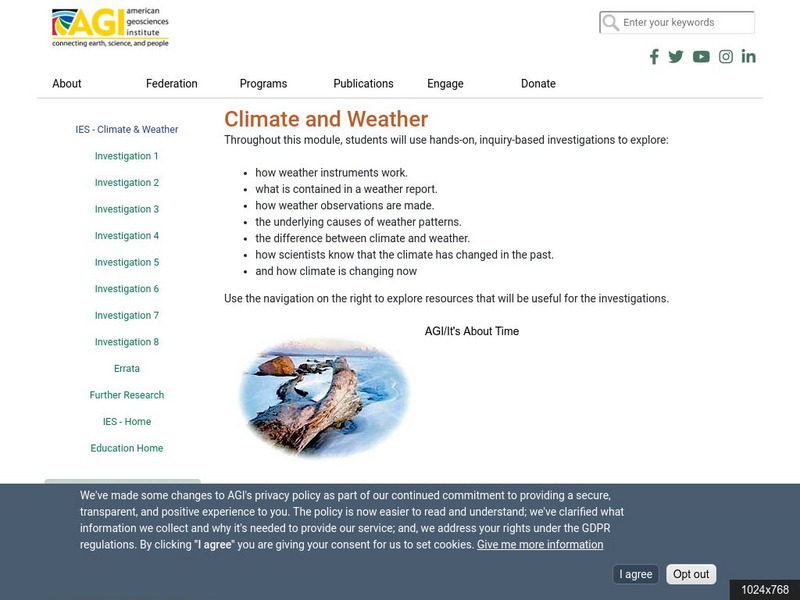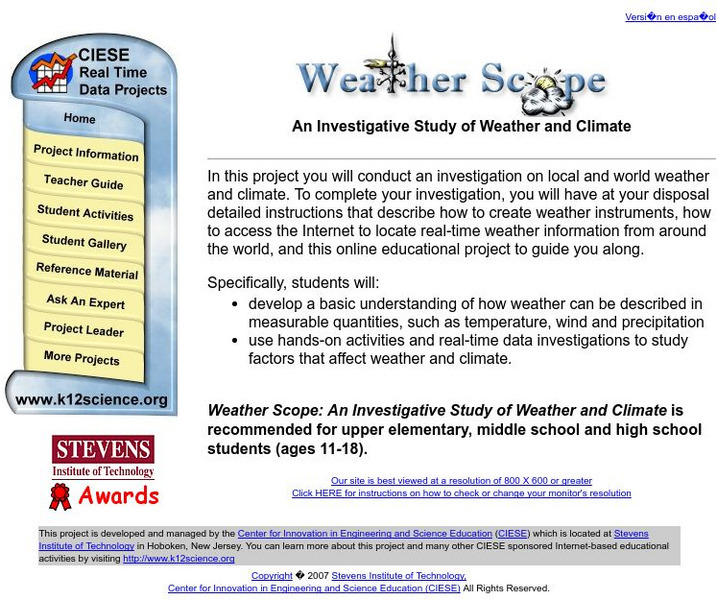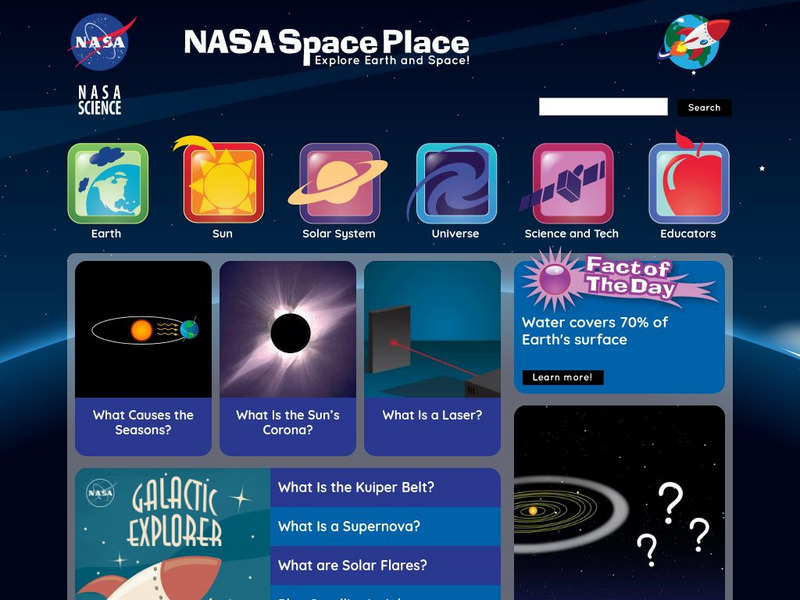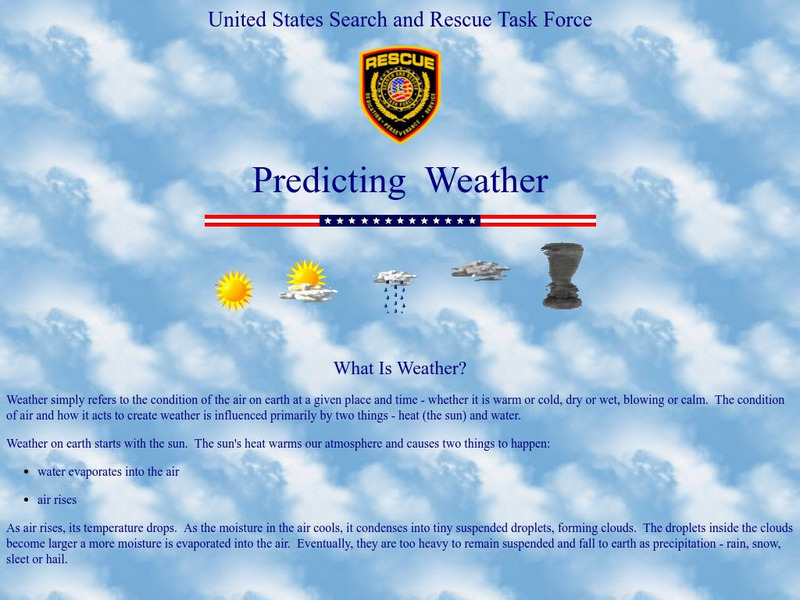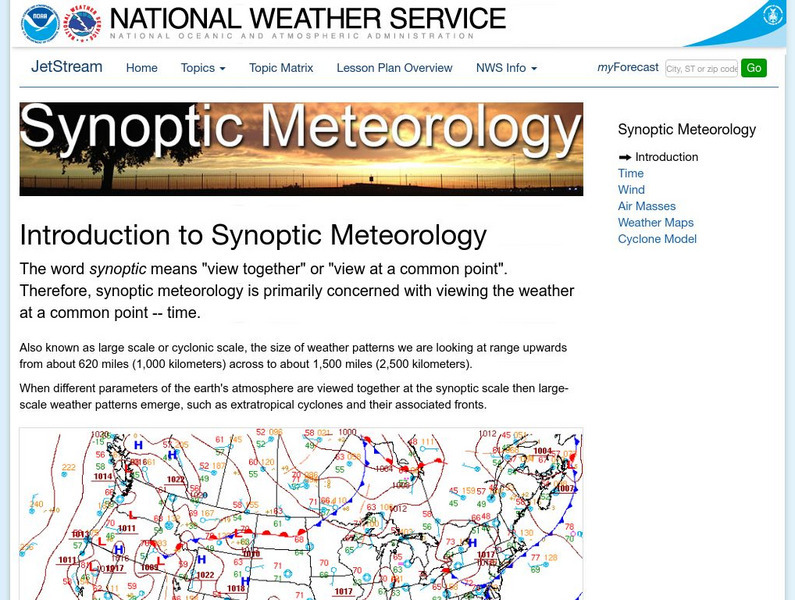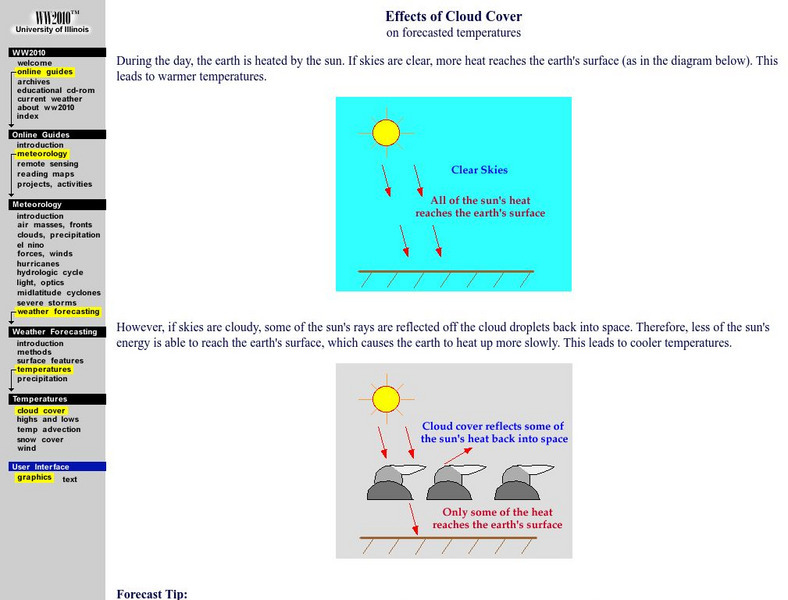Hi, what do you want to do?
Curated OER
The Power of Atmospheric Pressure Process
Learners are introduced to the basic principles of atmospheric pressure. After watching demonstrations, they discover the capability of air pressure and how it affects weather. In groups, they use an inquiry template to solve different...
Curated OER
What is Drought?
Middle schoolers explore and conduct an experiment on the effects of drought on the environment. They define what drought is and the impact that a shortage of rainfall can have on agriculture, municipal water supplies, tourism,...
Curated OER
Build a Thermometer
Students build a thermometer. In this weather instructional activity, students use red food coloring, rubber stoppers, and hard plastic tubing to build a thermometer. Students use their homemade thermometer to measure the temperature.
Curated OER
Learning Lesson: Atmospheric Collisions
Students participate in a demonstration showing how rain drops grow by coalescence. They use ping pong balls and put them in an air stream. They end the lesson discussing flash flood safety.
Curated OER
Is It Breathable?
Students explore air quality. In this environmental lesson, students observe a simulation of air pollution by blowing into a jar (with a straw) that has chalk dust. Students discuss how air quality can effect the way we breathe.
Curated OER
Activities to Enhance STEDII Data
Students develop an understanding of related weather processes such as wind, cloud cover, and temperature using STEDII data and instrumentation. In addition, they integrate mathematical calculations to produce a forecast map.
Curated OER
Planning a Tourist Resort
Students work in teams of 2 to complete the presentation portion of the assignment. They may be required to work alone or may work with their partner to complete the "Board Member's Responses."
American Geosciences Institute
American Geosciences Institute: Climate and Weather
Eight hands-on lessons module in which students explore climate and weather. Inquiry-based investigations include observing weather, weather reporting, weather maps, weather satellites, causes of weather, and climate change.
USA Today
Usa Today: Understanding Clouds and Fog
Learn about the different kinds of clouds, their location in the sky, how they form, their influence on the weather, and unusual cloud shapes.
Center for Innovation in Engineering and Science Education, Stevens Institute of Technology
Ciese Real Time Data Projects: Weather Scope: A Study of Weather and Climate
Use real-time data to study factors that affect weather and climate, create weather instruments, and share data with learners around the world.
NASA
Ucar Center for Science Education: Web Weather for Kids
This website provides information, lessons and activities regarding clouds, tornadoes, thunderstorms, hurricanes and winter storms.
Scholastic
Scholastic: A Weather Watch Lesson for Grades Pre K 2
Students focus on observing weather patterns and reporting what they see. They also learn about different types of clouds and how each type is related to weather conditions. The related activity is no longer available.
Other
U.s. Search and Rescue Task Force: Predicting Weather
Information on what weather is to begin with, then progresses to how scientists can predict the weather. Common ways to predict weather are also included such as use of a barometer and rain gauge.
National Weather Service
National Weather Service: Jetsream: Synoptic Meteorology
The National Weather Service presents this site on synoptic meteorology, large-scale weather systems. Learn about the structure and behavior of the atmosphere, including clouds, precipitation, winds and more. Also includes learning...
Other
Digital Library for Earth System Education: Teaching Box: Essentials of Weather
A suite of lessons focusing on the basic elements of climate and weather. Inquiry-based exploration of extreme weather events and the factors of weather including clouds, wind, air pressure, temperature, and the water cycle.
University Corporation for Atmospheric Research
Ucar: Make a Weather Forecast
Review these tips and learn to make predictions of the weather.
Science Struck
Science Struck: A List of All Weather Symbols and Their Meanings
Provides a comprehensive list of weather symbols used on weather maps.
Discovery Education
Discovery Education: Weather Maps
This site provides a lesson plan in which groups of young scholars will each investigate a different type of weather map use for weather forecasting. Also includes discussion questions, extension ideas, and links to additional sites for...
University of Illinois
University of Illinois Urbana Champaign: Effects of Cloud Cover on Forecasting
This site explores the "factors to consider when forecasting day and nightime temperatures," and how cloud cover will effect these predictions.
Other
Gorp: Using Clouds to Forecast the Weather
This resource provides information on the four main types of clouds that form in the atmosphere. There are high clouds, middle clouds, low clouds and clouds with vertical development.
TeachEngineering
Teach Engineering: Weather Basics
Students are introduced to the basics of the Earth's weather. Concepts include fundamental causes of common weather phenomena such as temperature changes, wind, clouds, rain and snow. The different factors that affect the weather and the...
Science Education Resource Center at Carleton College
Serc: Looking at Clouds: Making a Book That Identifies Cloud Types
While creating their own cloud book, students will identify and classify the different cloud types and the weather conditions that they bring.
Dan Satterfield
Wild Weather: Dan's Wild Wild Weather Page
A site to find out anything you want to know about weather, including clouds, tornadoes, satellites, radar, wind, climate, and more. Suitable for all ages. Also includes games, quizzes, and teacher resources.
Science Education Resource Center at Carleton College
Serc: I Can Forecast the Weather
The learners will study and be able to tell the difference between cumulus, cirrus, and stratus clouds. As they tell the difference they will be able to tell what the weather will be like.












